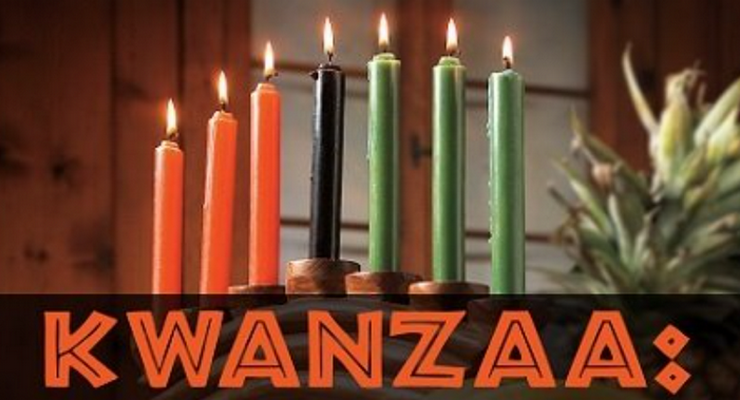
Pasadena’s 34th annual Kwanzaa celebration will be conducted from 11 a.m.-12:15 p.m. Tuesday through Zoom and include music and storytelling.
The 2022 Kwanzaa theme is “Kwanzaa, Culture and the Practice of Freedom: A Message and Model For Our Times.”
“This year’s Kwanzaa theme self-consciously focuses on the foundational right and practice of freedom,” Maulana Karenga wrote in his annual founder’s message.
“I speak here of freedom in its inclusive sense, not only freedom from domination, deprivation and degradation so rampant and ruinous in the world, but also of freedom to be ourselves, to express and develop ourselves, to grow and flourish and come into the fullness of ourselves.”
Karenga, chair of Africana Studies at Cal State Long Beach, created Kwanzaa in 1966 in what he called “an audacious act of self-determination.”
“Kwanzaa is and has always been also a celebration of freedom, a celebration of hearts and minds free from the negative conceptions, the catechism of impossibilities and forms and practices of oppression taught and imposed by a racist society,” Karenga wrote in the founder’s message.
“And it was and is a celebration of our freedom to see, express and sing ourselves in dignity-affirming, life-enhancing, world-preserving and liberating ways.”
Kwanzaa’s focus is the “Nguzo Saba,” the Seven Principles, all of which are Swahili words. Each night is dedicated to one of the principles, beginning with Umoja — or unity — expressing the goal of striving for and maintaining unity in the family and community.
The principle for the second night is Kujichagulia, self- determination, “to define and name ourselves, as well as to create and speak for ourselves.”
The principle for the third night is Ujima.
The other principles are Ujamaa (cooperative economics), Nia (purpose), Kuumba (creativity) and Imani (faith).
During the week, a candelabrum called a Kinara is lit, and ears of corn representing each child in the family are placed on a traditional straw mat.
African foods such as millet, spiced pepper balls and rice are often served. Some people fast during the holiday and a feast is often held on its final night.
A flag with three bars — red for the struggle for freedom, black for unity and green for the future — is sometimes displayed during the holiday.
Kwanzaa is based on the theory of Kawaida, which espouses that social revolutionary change for Black America can be achieved by exposing Blacks to their cultural heritage.
Registration can be made at pasadena.evanced.info/signup/EventDetails?EventId=6717














 0 comments
0 comments


